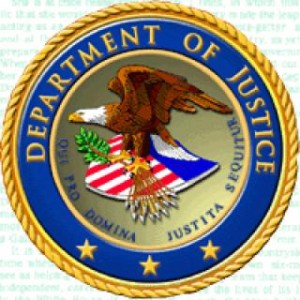RHODE ISLAND
Two businessmen were charged in federal court with allegedly filing bank loan applications fraudulently seeking more than a half-million dollars in forgivable loans guaranteed by the Small Business Administration (SBA) under the Coronavirus Aid, Relief, and Economic Security (CARES) Act, officials announced this week.
David A. Staveley, aka Kurt D. Sanborn, 52, of Andover, Massachusetts, and David Butziger, 51, of Warwick, Rhode Island, are charged with conspiring to seek forgivable loans guaranteed by the SBA.
Staveley and Butziger are the first individuals in the nation charged with allegedly defrauding the CARES Act SBA Paycheck Protection Program.
The pair allegedly claimed to have dozens of employees earning wages at four different business entities when, in fact, there were no employees working for any of the businesses.
Staveley and Butziger are charged by way of a federal criminal complaint with conspiracy to make false statement to influence the SBA and conspiracy to commit bank fraud.
Additionally, Staveley is charged with aggravated identity theft. Butziger is charged with bank fraud.
“Tens of millions of Americans have lost their jobs and have had their lives thrown into chaos because of the coronavirus pandemic. It is unconscionable that anyone would attempt to steal from a program intended to help hard working Americans continue to be paid so they can feed their families and pay some of their bills,” said U.S. Attorney Aaron L. Weisman for the District of Rhode Island.
Adding, “Attorney General Barr has directed all U.S. Attorneys to prioritize the investigation and prosecution of crimes related to coronavirus and COVID-19, and we are doing just that.”
“As alleged, David Staveley and David Butziger tried to capitalize on the coronavirus crisis by conspiring to fraudulently obtain more than half a million dollars in forgivable loans that were intended to help small businesses teetering on the edge of financial ruin,” said Special Agent in Charge Joseph R. Bonavolonta of the FBI’s Boston Field Office.
Court documents unsealed this week indicate that the fraudulent loan requests were to pay employees of businesses that were not operating prior to the start of the COVID-19 pandemic and had no salaried employees, or, as in one instance, to pay employees at a business the loan applicant did not own.
Allegedly, Staveley and Butziger discussed via email the creation of fraudulent loan applications and supporting documentation to seek loans guaranteed by the SBA for COVID-19 relief through the Paycheck Protection Program (PPP). It is alleged that Staveley posed as his brother in real estate transactions.
It is alleged that Staveley claimed in loan applications requesting more than $438,500 that he had dozens of employees at three restaurants he owned, two in Warwick, Rhode Island, and one in Berlin, Massachusetts.
An investigation determined that one of the Rhode Island restaurants, the former Remington House, and the Massachusetts restaurant, On The Trax, were not open for business prior to the start of the COVID-19 pandemic, according to officials.
However, the loan applications were submitted, or at any time thereafter.
Moreover, Staveley did not own or have any role in the second Rhode Island restaurant, Top of the Bay, for which he was seeking financial relief.
Court documents indicate that Staveley’s Massachusetts restaurant was closed by March 10, 2020, when the town of Berlin revoked the business’ liquor license for numerous reasons, including that “Sanborn” allegedly misrepresented that his brother owned the restaurant.
Investigators obtained information that Staveley/Sanborn allegedly used his brother’s personal identifying information in other real estate transactions as well.
According to court documents, it is alleged that on April 6, 2020, Butziger filed an application seeking a $105,381 SBA loan under the PPP as an owner of an unincorporated entity named Dock Wireless.
Butziger claimed in documentation filed with the bank and in a telephone call with an FBI undercover agent posing as a bank compliance officer that he had seven full-time employees on Dock Wireless’ payroll, including himself.
Butziger falsely represented to the agent that he brought the employees on full-time on Jan. 1, 2020, and laid them off at the end of March.
Butziger claimed the employees continued to work without being paid through April 2020, and that he would use SBA PPP funds to pay them.
The Rhode Island State Department of Revenue provided information to the IRS of having no records of employee wages having been paid in 2020 by Butziger or Dock Wireless.
Agents interviewed several of the supposed Dock Wireless employees who reported that they never worked for Butziger or Dock Wireless.
The CARES Act is a federal law enacted on March 29, 2020, designed to provide emergency financial assistance to the millions of Americans who are suffering the economic effects caused by the COVID-19 pandemic.
One source of relief provided by the CARES Act was the authorization of up to $349 billion in forgivable loans to small businesses for job retention and certain other expenses, through the PPP.
In April 2020, Congress authorized over $300 billion in additional PPP funding.
The PPP allows qualifying small-businesses and other organizations to receive loans with a maturity of two years and an interest rate of 1 percent. PPP loan proceeds must be used by businesses on payroll costs, interest on mortgages, rent, and utilities.
The PPP allows the interest and principal to be forgiven if businesses spend the proceeds on these expenses within eight weeks of receipt and use at least 75 percent of the forgiven amount for payroll.
The defendants are presumed innocent unless proven guilty.


